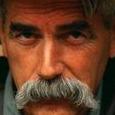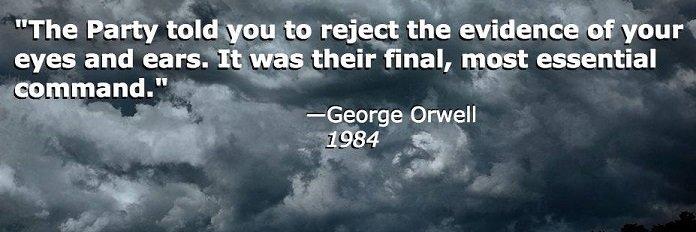-
Posts
3,024 -
Joined
-
Last visited
-
Days Won
19
Content Type
Profiles
Forums
Events
Articles
Everything posted by Wideleft
-
Is it too soon for another Scott Moe joke?
-

Don't Look Back - 2022/2023 Bombers Off Season
Wideleft replied to Wideleft's topic in Blue Bomber Discussion
It doesn't help his cause to be left off the "Top 35" FA list. -

2022/2023 Off-Season (League/Non-Bombers-specific News)
Wideleft replied to Noeller's topic in Blue Bomber Discussion
I apologize that I can't limit my Rider humour to "Their stadium looks like a toilet" or "They are a bunch of inbreds with no teeth". -
We laugh, but he would have been elected as a Conservative in some of our rural ridings. And Tuxedo...
-

Don't Look Back - 2022/2023 Bombers Off Season
Wideleft replied to Wideleft's topic in Blue Bomber Discussion
Or maybe he was referring to Lanier being rated 6 places higher than Demski?🤪 -

Don't Look Back - 2022/2023 Bombers Off Season
Wideleft replied to Wideleft's topic in Blue Bomber Discussion
I agree with your disagreement. The chips on Bailey's shoulders are massive. He'd care either way. -

Don't Look Back - 2022/2023 Bombers Off Season
Wideleft replied to Wideleft's topic in Blue Bomber Discussion
He's not on the list. He's being sarcastic. -
Coming to HBO Feb 7. 100% on the Tomatometer/94% Audience
-
Satire.
-
That's just the wives. There's a certain former Winnipeg weather girl who won't talk about her time with Hull. Yet.
-
I won't get drawn into your personal life story as it would be unfair for me to offer any comment on it either way - other than to say I'm sorry you had to go through that. That being said, there are a LOT of people who abuse alcohol and comparatively few who hit their wives with the steel heels of shoes, hang them off balconies etc. Dude. I never mentioned Heatley, but who are you to argue with Dan Snyder's parents?
-
“When truth is replaced by silence, the silence is a lie.” ― Yevgeny Yevtushenko
-
Please save your energy to defend a better person than Bobby Hull.
-
Black History Month starts tomorrow. Take some time in February to read the works of black authors. Being Black Has Never Protected Us From Black Police Scott Woods Jan 30, 2023 5 min read The conversation around the race of Tyre Nichols’ murderers is not nearly as complex as some would like to make it Three weeks ago, on January 7, five Memphis policemen brutally beat Tyre Nichols, a Black man guilty of no crime that we can ascertain. Nichols died three days later from his wounds. It is a death that would not have occurred if not for their actions, and for which the officers in question are not only unrepentant about, but fabricated a report to cover. This is where we are now. After centuries of protests and demands in the interest of justice and Black survival, this is where we are. After the flare of worldwide protests in 2020—which netted us the worst year of police killings on record (2022) and more DEI training than you can shake a Black Lives Matter sign at—this is where we are. Tyre Nichols was killed. Not immediately. Not right away. Not instantly, like we’re used to. They restrained him, beat him with their hands, maced him, then chased him when he feared he was about to be killed, then beat him some more, until he could not move. Afterwards, they stood near his seated and bleeding body, puffing their chests in that locker room way, as if they had just run a flawless game of 21 at a rec center court. They didn’t care what Tyre Nichols overheard or needed. They did not consider if any family were looking for him. They did not care that he was well out of the weight class of any one of them, let alone five of them. They did not care about his rights or his health or his anything. They did not care about the mother he was calling out for near the end. They did not care that he was drowning in their disinterest, cast aside like a toy played with too roughly once the stuffing began to leak from it. That the five cops are Black is irrelevant because they're cops. If this comes as a shock to you or you think this somehow changes anything people who have been critical of policing have been saying, then you’re either obtuse or haven't been listening to Black people who aren’t cops. We told you about Black cops in Boyz n the Hood, when the Black cop put a gun to Tre's throat for no reason other than to terrorize someone powerless before his authority. We told you this in 1993 through KRS-One with the song "Black Cop." James Baldwin—who white people love telling you they studied in college—told you in 1985 in The Evidence of Things Not Seen, writing: Black policemen were another matter. We used to say, “If you just must call a policeman”—for we hardly ever did—“for god’s sake, try to make sure it’s a White one.” A Black policeman could completely demolish you. He knew far more about you than a White policeman could and you were without defenses before this Black brother in uniform whose entire reason for breathing seemed to be his hope to offer proof that though he was Black, he was not Black like you. Don’t spend too much time getting hung up on the race of the officers in this case or any other. We’ve had this understanding with the police since Black people started putting on blue uniforms to “change things from within the system.” If there is one thing to come out of this specific public instance of horror and anti-Blackness, let it be that we stop pretending like adding perfectly decent Black people into horrific systems built entirely on their demise might actually be changed. The inability to reform policing is not an issue of ignorance. This is, always has been, and always will be a question of will. Forget what people say about policing. Having an opinion is not having a position. We must constantly ask civic leaders what they’ve been doing about this rotten institution. How do they plan to overhaul a system so profoundly evil that it can make five Black officers—men who on a different day could’ve been pulled over and subjected to a similar violence themselves if not for their uniforms—torture a single terrified Black man into a dying daze? And because it is easy to allow the race of the officers to distract us from the deeper issues embedded in policing, I offer this observation. Yes, the five Black cops are being treated more harshly than in most cases of police abuse that we get to see. That doesn't ever mean treat them more like white cops. It means lobbying for more white cops to be treated like these five Black cops. (They could start with Preston Hemphill, the white officer who allegedly tased Tyre Nichols but hasn't been given the same attention as his cohorts.) Treat cops like cops, period, and we never have to have this conversation. But under no circumstance should we come remotely close to defending this gang of Memphis thugs against the racism they signed on to implement and sustain. Upon hearing that Tyre Nichols was, among other things, a fan of photography, I was reminded of the science behind aperture. Camera lenses have diaphragms, and depending on how open or closed that diaphragm is determines how sharp or blurry a photo is. Not the whole picture, but the background behind whatever is closest to the lens. If the aperture is set low, lens opened wide, then the background is blurry. As you adjust the aperture to higher settings, the background comes into sharper focus. Imagine Tyre Nichols that night. See him beaten by a gang of policemen in the dark. If you are someone who refuses to watch the video, just know that however you imagine that violence is just about right. In fact, all you can see is the violence that would eventually end his life. In that moment, there is no skateboard, no waiting child, no photography class. All of that is in the background somewhere, turned to smoke and dappled ghosts. We do not see any of those facets of Tyre in the face of such brutality. All we see are swinging limbs and fists, the holding up of a body that has no wind left in it, still being bludgeoned. That is what most of us saw in our minds when we first heard about this incident, sans video. All of our apertures regarding police violence are set low, but as some of us receive more information, the lens tightens and aspects of his life snap into focus. He becomes less of a target and more of a person. By contrast, the aperture of the policemen who killed Tyre Nichols was set to the most myopic level possible. In fact, they had no higher setting, focused only on the body in front of them, not as a person, but as a thing to tenderize into submission. We so rarely see police officers stop during the commission of violence, or stop another officer in the act of violence, because they are incapable of seeing the subject of their abuse as a person. Once police of any stripe have decided to harm you, you have no background, no context, no history. You become the object of whatever their biases may be. Being Black, you understand that those biases are almost always rooted in fear, guilt, or insecurity. Being Black doesn’t protect you from Black police; it exacerbates such confrontations. That the officers were Black just means they can skip the part where you as a Black target see them for what they are: power drunk hands of a value-compromised state. Then it’s just a question of whether or not they see themselves in you or above you, and if they feel the need to prove it that day. https://www.levelman.com/tyre-nichols-video-reaction/
-
-
Paul Fairie is a great follow on twitter:
-
Peter Young, besides being an awful person, relies on his sports contacts to maintain what's left of his "career", so will be at the front of the sportswashing crowd.
-
Or he was divorced three times because of it.
-
For those like me who don't believe the Pearly Gates exist, I have no qualms about that day being yesterday, today, tomorrow, 10 years ago or 10 years in the future - hence my lack of willingness to respectfully acknowledge his passing.
-
Please compare and contrast the life of Hull with another hockey great who suffered through addictions before allowing Hull's alcoholism as an excuse for his abusiveness. Leach (always) seeking to score an assist By: Janine LeGalPosted: 2:09 AM CST Saturday, Jan. 28, 2023 Reggie Leach is a sports legend. Regarded as a star from one of hockey’s greatest eras, his hockey career includes winning the Stanley Cup in 1975 and the Conn Smythe Trophy as most valuable player in 1976. He led the league in goals, was a member of the Team Canada champions and continues to hold NHL and team records. His list of awards and accolades received includes the Order of Canada, Order of Manitoba, induction into the Philadelphia Sports Hall of Fame, Philadelphia Flyers Hall of Fame, Manitoba Sports Hall of Fame, Manitoba Hockey Hall of Fame and Manitoba Indigenous Sports Hall of Fame. He also received doctor of laws degree from Brock University (Ont.) and the National Aboriginal Achievement Award. But there’s a whole other life, one after hockey, that makes Leach a star with a profound impact. Author of The Riverton Rifle: My Story — Straight Shooting on Hockey and on Life, Leach has dedicated his life to giving back. “I’m very lucky that I’m in a situation that I can help people along the way,” said Leach, who is of Ojibwa ethnicity, and a member of Berens River First Nation in Manitoba. Leach, 72, grew up in Riverton and now lives in Manitoulin Island, Ont., during the winter, returning to Manitoba from April to October every year. Passionate about motivational speaking, educating and inspiring youth, Leach has visited about 300 First Nations communities throughout North America, sharing lessons learned and owning choices made. “I’m a big believer in giving back to where you came from,” said Leach, who’s long been actively involved in fundraising through the Reggie Leach Classic golf tournaments and events to support organizations in Riverton. “Those are things that I was brought up to do as a kid: to be kind, be humble, stay positive.” Leach uses his life experience to inspire and motivate young people across North America. Connective North, which fosters student engagement and enhanced education outcomes in remote Indigenous communities, is one of the many organizations he partners with, doing Zoom calls with northern communities. “I speak about life choices; how important education is. I talk about the mistakes I made growing up. I believe that everybody makes mistakes, that if you take responsibility for yourself, you become stronger. I tell them my life story, about drugs and alcohol, life choices, life in general,” said Leach, who entered rehab for alcohol abuse in 1985, and has remained sober ever since. Grades 9 to 12 students from northern communities get a copy of his book before his visits and through open dialogue ask everything from why he stopped drinking to what it took to do so. “One school called me back several times. The kids are asking very important questions,” he said. “Whatever choice you make, you own that choice, good or bad. I think overall in today’s world, what’s going on, we as grandparents and parents, we’ve got to guide the kids in the right direction. We give the kids everything they want and they don’t have to be responsible for anything. “In today’s world, there’s no respect for elders, teachers. I’m a big fan of educators. I tell the kids, the teachers you have there, they have to go to college. All you have to do is listen. If you don’t listen, you don’t learn.” That persistence and determination runs in the Leach family. His son Jamie, who runs a Shoot to Score program out of Winnipeg, played in the NHL for parts of five seasons, winning the Stanley Cup with the Pittsburgh Penguins in 1992. They are the only First Nations father-and-son duo to have their names engraved on the Stanley Cup. Leach and his two children have all represented Canada: Leach with Team Canada in 1976; Jamie at the world junior hockey championship in 1989; and daughter Brandie at the world lacrosse championships in Scotland in 1993. His wife, Dawn Mahdabee Leach, has received numerous awards and will be recognized next month in Toronto with the 2023 Business Lifetime Achievement Award from the Canadian Council for Aboriginal Business. For Leach, it’s both important and gratifying to give back to the community. “Being an elder and stuff like that and receiving all these awards, I always give credit to all First Nations people and the people of Riverton. If it wasn’t for them I wouldn’t be getting all these awards. It takes a whole community, they’re still very proud of who I am,” he said. “It’s a good life, it really is. Everybody knows me as a hockey player; that’s just a stepping stone to who I am today. I am more proud of what I have done after hockey. “Today’s world is dangerous. We have all these drugs around the country. Things are going bad. First Nations communities, that’s what I think about all the time, I want to help them… A lot of people are not well off, they’re struggling. I think it’s our responsibility to help as many as possible, keep them on the right path.” Leach will be fundraising for Riverton organizations including the local rink, fire hall and minor hockey programs every month until April, and is planning a golf tournament in July. (To contribute or find out more about speaking engagements, email: zreg27@yahoo.com.) fpcity@freepress.mb.ca
-
He was a garbage human. Why should we let him rest in peace when he has 5 kids and 3 ex-wives who are still dealing with the trauma he dealt. Don't care how hard his slapshot was. "Then came a damning 2002 documentary on ESPN, which profiled his long history of alleged spousal abuse, among other issues. His first wife, Joanne, described several incidents of Hull physically beating her during their relationship, including once with a steel-heeled shoe. Their daughter, Michelle, a lawyer who works with victims of domestic crimes, described ugly scenes growing up in the home. “A lot of bad memories stem from how my dad acted when he was drinking. When he had been drinking, you’d just know that you didn’t want to be around here,” she said. Upon hearing what her father had told the Russian paper a few years earlier, she replied “that’s exactly like him.”" https://www.winnipegfreepress.com/breakingnews/2023/01/30/hockey-hall-of-fame-human-hall-of-shame






